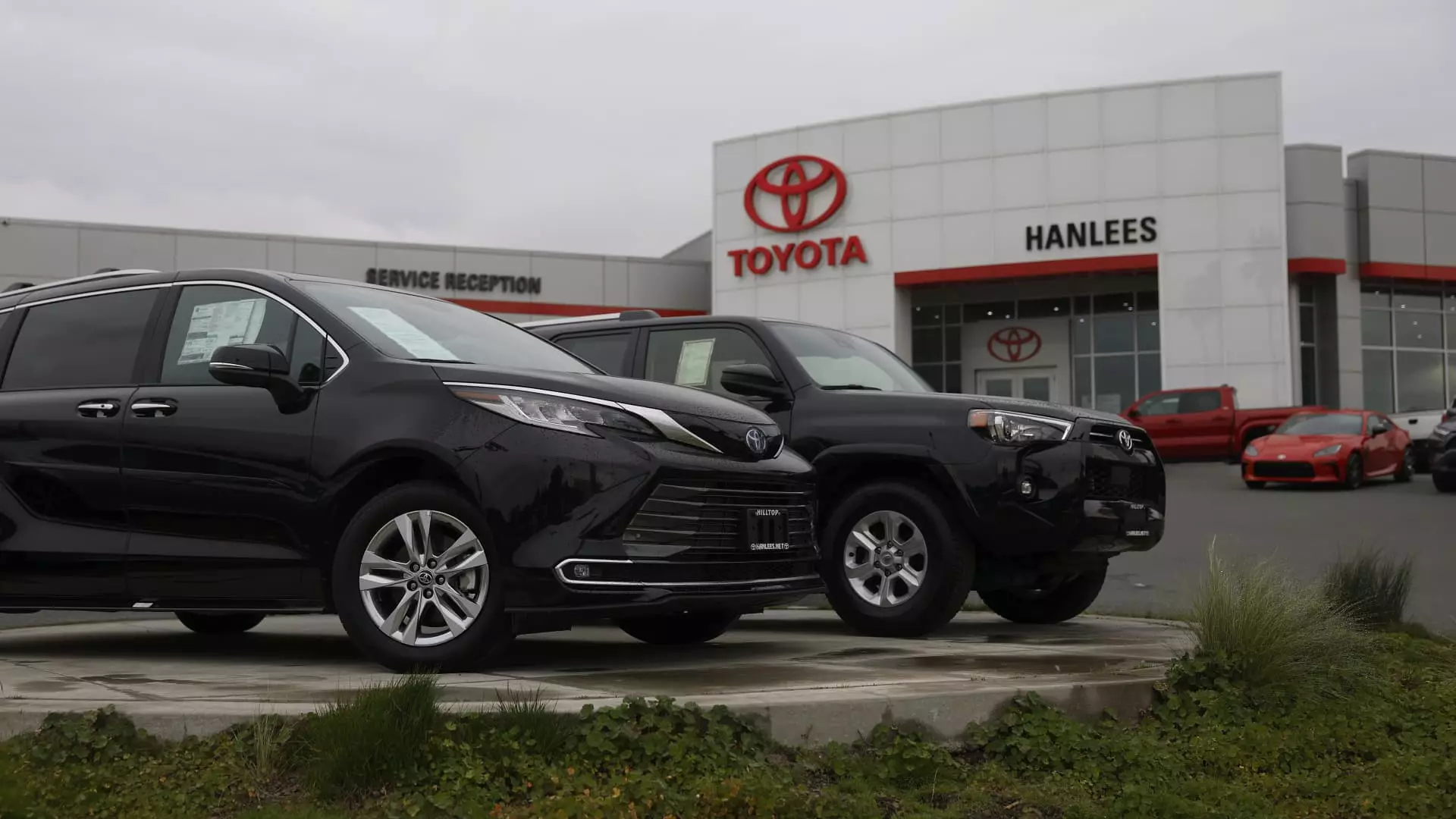The latest announcement of sweeping tariffs on auto imports by the United States has sent tremors through the automotive industry, particularly among Asian manufacturers. Last week, President Trump unveiled a surprising 25% tariff on vehicles not produced domestically, triggering market swings that stunned investors and rattled the core of global supply chains. The immediate fallout saw major Japanese automakers like Toyota and Nissan experience significant stock declines, at 9.4% and 9.3%, respectively, while South Korean giant Hyundai plummeted by 11.2%. Such drastic shifts in share value illustrate not only the fragile nature of these companies’ reliance on the American market but also the recklessness of imposing tariffs that threaten to upend the entire auto industry.
The Fragility of Global Markets
The automotive sector, inherently global, thrives on complex supply chains that crisscross national borders. The United States imported an astonishing $474 billion worth of automotive products in 2024 alone, underscoring how integral foreign manufacturers are to the American economy. In fact, Asian automakers dominated U.S. sales, with Toyota leading the charge by selling nearly 2 million cars in the past year. This dependency makes the newly imposed tariffs not just an economic irritant but a potential crisis for Asian automakers, which could face unmanageable operational challenges. According to Vivek Vaidya, a global client leader at a research firm, Asian manufacturers were caught off guard by such abrupt changes, raising the alarm for an irreparable impact on their profitability.
The Illusion of Production Shifts
For those who argue that Asian manufacturers could simply relocate their production to the U.S. to avoid tariffs, the reality is far more complicated. Transitioning production is nothing short of a monumental endeavor that requires billions of dollars and years of planning. Joe McCabe, a prominent industry leader, emphasizes that moving factories is not a feasible “overnight proposition.” Thus, the notion that automakers could swiftly mitigate tariff effects by reshoring production is not only impractical but also naive. For manufacturers like Toyota, which already has a substantial presence in the U.S., expanding operations enough to counteract such tariffs seems like an insurmountable challenge.
The Consumer Dilemma
The ramifications of the tariff debacle extend beyond the boardroom and into the consumer market. Richard Kaye, a portfolio manager, posits a troubling question: will manufacturers absorb the costs imposed by tariffs, or will they shift that financial burden onto consumers? Given the dynamics of market competition, it’s likely that consumers will feel the pinch as prices increase. Ultimately, this approach could lead to declining sales as buyers look elsewhere, further exacerbating financial losses for these automakers. Such a predicament poses long-term risks to brands that have historically enjoyed strong consumer loyalty.
The Unexpected Outlier: Suzuki’s Silver Lining
Amidst the widespread turmoil, one automaker, Suzuki, stands apart. Remarkably, Suzuki does not sell vehicles in the U.S. market, allowing it to avoid the repercussions of the tariff environment entirely. As a result, Suzuki’s share prices have shown resilience, even gaining over 1% year-to-date, contrasting sharply with the double-digit losses faced by competitors like Toyota and Nissan. This illustrates a critical lesson about market diversification and risk management; companies that can strategically position themselves outside of vulnerable markets may edge ahead during times of uncertainty.
The Broader Implications of Protectionism
The broader implications of these tariffs tread into the treacherous waters of economic protectionism. Such measures are commonly justified on the grounds of safeguarding domestic jobs and industries; however, they often lead to unintended consequences that harm the very sectors they aim to protect. By halting free trade, the U.S. risks inspiring retaliatory measures from affected nations, which could further complicate the scenario for American manufacturers. As the world becomes more interconnected, isolating a core industry like automotive manufacturing threatens to disrupt not just multinational corporations but the economy at large. The alarm bells are ringing, and it seems that shortsighted policy moves could lead to a far-reaching backlash that none of us are prepared for.


Leave a Reply